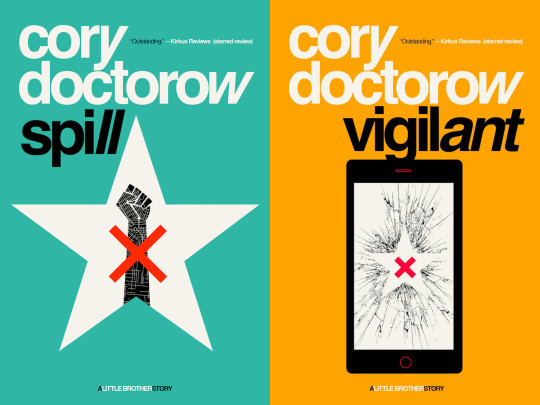#but TRES
Explore tagged Tumblr posts
Text

awhhhh ;_;
they must be so broken up about Sonoi's death.....

W H A T
WHO TF WAS SENDING OUT THE INVITATIONS!?!? >:O

meet me behind target mfer 🔫🔫🔫🔫

LOL

#still. I'm sad for them#its bs they weren't invited to Sonoi's funeral#they're the one-toned TRIO mfer#not uno not dos#but TRES#>:OO#my thougts#sentaisouped#avataro sentai donbrothers#donbrothers liveblog#who let delivery boy bring a parade float to a gun fight#donbrothers#29 peach falls#mj sonoi 😔🕺🕺🕺#one toned trio
7 notes
·
View notes
Text

Green Day solicit donations for HIV/AIDS organization, 1994
102K notes
·
View notes
Text

happy new earthspark everyone :] i drew this while rewatching season 1

^ little closeup. they are in a video call :]
#maccadam#optimus prime#elita one#megatron#cracks knuckles ok here we go#bumblebee#nightshade malto#thrash malto#robby malto#mo malto#jawbreaker malto#twitch malto#hashtag malto#terrans tag#earthspark#transformers earthspark#tre draws#and last but not least:#megoplita#<- this may not look very shippy but rest assured i was giggling and kicking my legs while doing the lineart
4K notes
·
View notes
Text
Ok, here we go.
If this post gets 5k notes, I'll actually start sending the resources I've been saving on autism/adhd to my parents and ask about going back to therapy.
Edit: ok, 5k for sending resources, 10k for therapy because 1) yall are too fast, and 2) I'm terrified of asking.
6K notes
·
View notes
Text
Happy 23rd Anniversary! Heres maya an pearl cuz i love them


#ace attorney#phoenix wright#maya fey#pearl fey#fanart#my art#im kinda late but uhhhhhhhhh#i love katsi’s pink tres bien uniform so much that just NEEDED to draw it
1K notes
·
View notes
Text






beeeeend and snap!
#ace attorney#phoenix wright#maya fey#miles edgeworth#tres bien#narumitsu#wrightworth#final fantasy#maid outfit
1K notes
·
View notes
Text
hey dont cry ok. billie joe armstrong in a skirt, mike dirnt in a dress, and tre cool in, uh...

1992, i think
5K notes
·
View notes
Text

Banana Pudding Cheesecake Tres Leches
1K notes
·
View notes
Text
coming home from the green day concert last night, i told my brother "you know, i respect billie joe a lot for keeping up with the culture. the guy's a family man in his fifty's, but he's still wearing eyeliner and jumping around on stage and writing songs about hating america and kissing boys. i really respect him for trying to keep punk faggot culture alive." and my brother was quiet for a second, then he said "i don't think i've ever heard someone use 'punk faggot' as a compliment before"
#paraphrasing of course but yeah#green day#billie joe armstrong#billie joe#mike dirnt#tre cool#green day live#bobby sox
1K notes
·
View notes
Text
Epic Systems, a lethal health record monopolist

Epic Systems makes the dominant electronic health record (EHR) system in America; if you're a doctor, chances are you are required to use it, and for every hour a doctor spends with a patient, they have to spend two hours doing clinically useless bureaucratic data-entry on an Epic EHR.
How could a product so manifestly unfit for purpose be the absolute market leader? Simple: as Robert Kuttner describes in an excellent feature in The American Prospect, Epic may be a clinical disaster, but it's a profit-generating miracle:
https://prospect.org/health/2024-10-01-epic-dystopia/
At the core of Epic's value proposition is "upcoding," a form of billing fraud that is beloved of hospital administrators, including the "nonprofit" hospitals that generate vast fortunes that are somehow not characterized as profits. Here's a particularly egregious form of upcoding: back in 2020, the Poudre Valley Hospital in Ft Collins, CO locked all its doors except the ER entrance. Every patient entering the hospital, including those receiving absolutely routine care, was therefore processed as an "emergency."
In April 2020, Caitlin Wells Salerno – a pregnant biologist – drove to Poudre Valley with normal labor pains. She walked herself up to obstetrics, declining the offer of a wheelchair, stopping only to snap a cheeky selfie. Nevertheless, the hospital recorded her normal, uncomplicated birth as a Level 5 emergency – comparable to a major heart-attack – and whacked her with a $2755 bill for emergency care:
https://pluralistic.net/2021/10/27/crossing-a-line/#zero-fucks-given
Upcoding has its origins in the Reagan revolution, when the market-worshipping cultists he'd put in charge of health care created the "Prospective Payment System," which paid a lump sum for care. The idea was to incentivize hospitals to provide efficient care, since they could keep the difference between whatever they spent getting you better and the set PPS amount that Medicare would reimburse them. Hospitals responded by inventing upcoding: a patient with controlled, long-term coronary disease who showed up with a broken leg would get coded for the coronary condition and the cast, and the hospital would pocket both lump sums:
https://pluralistic.net/2024/06/13/a-punch-in-the-guts/#hayek-pilled
The reason hospital administrators love Epic, and pay gigantic sums for systemwide software licenses, is directly connected to the two hours that doctors spent filling in Epic forms for every hour they spend treating patients. Epic collects all that extra information in order to identify potential sources of plausible upcodes, which allows hospitals to bill patients, insurers, and Medicare through the nose for routine care. Epic can automatically recode "diabetes with no complications" from a Hierarchical Condition Category code 19 (worth $894.40) as "diabetes with kidney failure," code 18 and 136, which gooses the reimbursement to $1273.60.
Epic snitches on doctors to their bosses, giving them a dashboard to track doctors' compliance with upcoding suggestions. One of Kuttner's doctor sources says her supervisor contacts her with questions like, "That appointment was a 2. Don’t you think it might be a 3?"
Robert Kuttner is the perfect journalist to unravel the Epic scam. As a journalist who wrote for The New England Journal of Medicine, he's got an insider's knowledge of the health industry, and plenty of sources among health professionals. As he tells it, Epic is a cultlike, insular company that employs 12.500 people in its hometown of Verona, WI.
The EHR industry's origins start with a GW Bush-era law called the HITECH Act, which was later folded into Obama's Recovery Act in 2009. Obama provided $27b to hospitals that installed EHR systems. These systems had to more than track patient outcomes – they also provided the data for pay-for-performance incentives. EHRs were already trying to do something very complicated – track health outcomes – but now they were also meant to underpin a cockamamie "incentives" program that was supposed to provide a carrot to the health industry so it would stop killing people and ripping off Medicare. EHRs devolved into obscenely complex spaghetti systems that doctors and nurses loathed on sight.
But there was one group that loved EHRs: hospital administrators and the private companies offering Medicare Advantage plans (which also benefited from upcoding patients in order to soak Uncle Sucker):
https://www.ncbi.nlm.nih.gov/pmc/articles/PMC8649706/
The spread of EHRs neatly tracks with a spike in upcharging: "from 2014 through 2019, the number of hospital stays billed at the highest severity level increased almost 20 percent…the number of stays billed at each of the other severity levels decreased":
https://oig.hhs.gov/oei/reports/OEI-02-18-00380.pdf
The purpose of a system is what it does. Epic's industry-dominating EHR is great at price-gouging, but it sucks as a clinical tool – it takes 18 keystrokes just to enter a prescription:
https://jamanetwork.com/journals/jamanetworkopen/fullarticle/2729481
Doctors need to see patients, but their bosses demand that they satisfy Epic's endless red tape. Doctors now routinely stay late after work and show up hours early, just to do paperwork. It's not enough. According to another one of Kuttner's sources, doctors routinely copy-and-paste earlier entries into the current one, a practice that generates rampant errors. Some just make up random numbers to fulfill Epic's nonsensical requirements: the same source told Kuttner that when prompted to enter a pain score for his TB patients, he just enters "zero."
Don't worry, Epic has a solution: AI. They've rolled out an "ambient listening" tool that attempts to transcribe everything the doctor and patient say during an exam and then bash it into a visit report. Not only is this prone to the customary mistakes that make AI unsuited to high-stakes, error-sensitive applications, it also represents a profound misunderstanding of the purpose of clinical notes.
The very exercise of organizing your thoughts and reflections about an event – such as a medical exam – into a coherent report makes you apply rigor and perspective to events that otherwise arrive as a series of fleeting impressions and reactions. That's why blogging is such an effective practice:
https://pluralistic.net/2021/05/09/the-memex-method/
The answer to doctors not having time to reflect and organize good notes is to give them more time – not more AI. As another doctor told Kuttner: "Ambient listening is a solution to a self-created problem of requiring too much data entry by clinicians."
EHRs are one of those especially hellish public-private partnerships. Health care doctrine from Reagan to Obama insisted that the system just needed to be exposed to market forces and incentives. EHRs are designed to allow hospitals to win as many of these incentives as possible. Epic's clinical care modules do this by bombarding doctors with low-quality diagnostic suggestions with "little to do with a patient’s actual condition and risks," leading to "alert fatigue," so doctors miss the important alerts in the storm of nonsense elbow-jostling:
https://www.ncbi.nlm.nih.gov/pmc/articles/PMC5058605/
Clinicians who actually want to improve the quality of care in their facilities end up recording data manually and keying it into spreadsheets, because they can't get Epic to give them the data they need. Meanwhile, an army of high-priced consultants stand ready to give clinicians advise on getting Epic to do what they need, but can't seem to deliver.
Ironically, one of the benefits that Epic touts is its interoperability: hospitals that buy Epic systems can interconnect those with other Epic systems, and there's a large ecosystem of aftermarket add-ons that work with Epic. But Epic is a product, not a protocol, so its much-touted interop exists entirely on its terms, and at its sufferance. If Epic chooses, a doctor using its products can send files to a doctor using a rival product. But Epic can also veto that activity – and its veto extends to deciding whether a hospital can export their patient records to a competing service and get off Epic altogether.
One major selling point for Epic is its capacity to export "anonymized" data for medical research. Very large patient data-sets like Epic's are reasonably believed to contain many potential medical insights, so medical researchers are very excited at the prospect of interrogating that data.
But Epic's approach – anonymizing files containing the most sensitive information imaginable, about millions of people, and then releasing them to third parties – is a nightmare. "De-identified" data-sets are notoriously vulnerable to "re-identification" and the threat of re-identification only increases every time there's another release or breach, which can used to reveal the identities of people in anonymized records. For example, if you have a database of all the prescribing at a given hospital – a numeric identifier representing the patient, and the time and date when they saw a doctor and got a scrip. At any time in the future, a big location-data breach – say, from Uber or a transit system – can show you which people went back and forth to the hospital at the times that line up with those doctor's appointments, unmasking the person who got abortion meds, cancer meds, psychiatric meds or other sensitive prescriptions.
The fact that anonymized data can – will! – be re-identified doesn't mean we have to give up on the prospect of gleaning insight from medical records. In the UK, the eminent doctor Ben Goldacre and colleagues built an incredible effective, privacy-preserving "trusted research environment" (TRE) to operate on millions of NHS records across a decentralized system of hospitals and trusts without ever moving the data off their own servers:
https://pluralistic.net/2024/03/08/the-fire-of-orodruin/#are-we-the-baddies
The TRE is an open source, transparent server that accepts complex research questions in the form of database queries. These queries are posted to a public server for peer-review and revision, and when they're ready, the TRE sends them to each of the databases where the records are held. Those databases transmit responses to the TRE, which then publishes them. This has been unimaginably successful: the prototype of the TRE launched during the lockdown generated sixty papers in Nature in a matter of months.
Monopolies are inefficient, and Epic's outmoded and dangerous approach to research, along with the roadblocks it puts in the way of clinical excellence, epitomizes the problems with monopoly. America's health care industry is a dumpster fire from top to bottom – from Medicare Advantage to hospital cartels – and allowing Epic to dominate the EHR market has somehow, incredibly, made that system even worse.
Naturally, Kuttner finishes out his article with some antitrust analysis, sketching out how the Sherman Act could be brought to bear on Epic. Something has to be done. Epic's software is one of the many reasons that MDs are leaving the medical profession in droves.
Epic epitomizes the long-standing class war between doctors who want to take care of their patients and hospital executives who want to make a buck off of those patients.

Tor Books as just published two new, free LITTLE BROTHER stories: VIGILANT, about creepy surveillance in distance education; and SPILL, about oil pipelines and indigenous landback.


If you'd like an essay-formatted version of this post to read or share, here's a link to it on pluralistic.net, my surveillance-free, ad-free, tracker-free blog:
https://pluralistic.net/2024/10/02/upcoded-to-death/#thanks-obama

Image: Flying Logos (modified) https://commons.wikimedia.org/wiki/File:Over_$1,000,000_dollars_in_USD_$100_bill_stacks.png
CC BY-SA 4.0 https://creativecommons.org/licenses/by-sa/4.0/deed.en
#pluralistic#ehrs#robert kuttner#tres#trusted research environments#ben goldacre#epic#epic systems#interoperability#privacy#reidentification#deidentification#thanks obama#upcoding#Hierarchical Condition Category#medicare#medicaid#ai#American Recovery and Reinvestment Act#HITECH act#medicare advantage#ambient listening#alert fatigue#monopoly#antitrust
816 notes
·
View notes
Text
okay so like. far be it from me (a certified hater) to over sympathize with buck’s current boyfriend. but there is something so genuinely tragic about being really the first person to witness the buck and eddie thing up close like this *while also knowing* for a fact that there’s actual potential there since he knows for sure that buck is queer and also probably eddie since he clocked him at least enough to take him on helicopter vegas naked fight dates or whatever they were doing while buck’s brain was turning to jealousy jello. like i do think ana knew by the time eddie was dumping her and i think taylor recognized eddie as a threat and Suspected because they did notably try to kill each other with their psychic mind powers. but this is the first time there’s been someone literally wearing a visitor badge and looking like the family friend checking in on local mummy-cursed firefighter buck diaz while his husband sits nearby indulgently rolling his eyes and explaining buck’s derangements to you, the clear outsider in the room like. Woof.
1K notes
·
View notes
Text
Quackity: There's a possibility you have two fathers *laughs* and there's nothing bad with having two dads, ok? One of them - one of them is a man called Luzu, and the other one is a man called Wilbur. How does that sound, son? Now we're gonna have to choose and find out which one of them is gonna be your dad.
Tilin: *puts down a sign*
Quackity: Let's see, what does it say? Move, move son I can't read it.
Tilin's sign: I'm la tres leches?
Quackity:

#Quackity#Tilin#QSMP#how do I frickin translate this#in like. the most non-graphic way possible#Basically calling Tilin a tres leches implies that Q slept around a lot#because tres leches is a sponge cake that's made with 3 kinds of milk basically#and you know. the implications.#I'm sure you can piece together the rest
11K notes
·
View notes
Text

the boys in ther Rock am Ring stage fits 🔥 timelapse vid on Patreon
1K notes
·
View notes
Text

them.
#maccadam#megoplita#elita one#megatron#optimus prime#earthspark#this didnt fit the vibes of that last post so here it is on its own.#tre draws
4K notes
·
View notes
Text

754 notes
·
View notes
Text

Chocolate tres leches
#cake#tres leches cake#chocolate#dessert#food#chocolate cake#milk#whipped cream#mexican food#sweet food#sweet#sweets#easy recipes#tasty#foodporn#delicious#cooking#food photography#foodgasm#recipe
2K notes
·
View notes